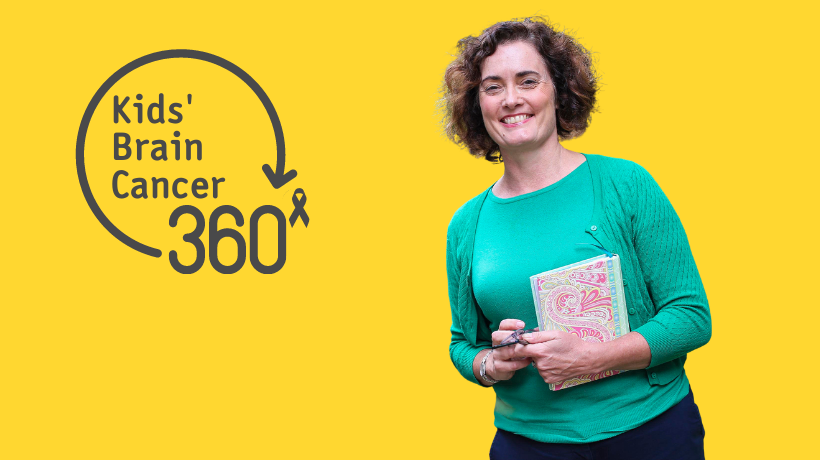
Kids’ Brain Cancer 360 is an editorial series where The Kids’ Cancer Project takes a deep dive into the issues confronting children diagnosed with this, the deadliest disease faced by Australian families today, by speaking with a broad spectrum of carers
Today we hear from Suzanne Momber, Oncology clinical nurse specialist, Perth Children’s Hospital, who provides her perspective as an oncology clinical nurse specialist, her specialty being childhood brain cancer.
The best way to describe my role is ‘care coordination’. Along with the medical consultants, I meet with the family around their time of neurosurgery, when we’re still unsure of what the final diagnosis will be.
At that time, we acknowledge the terrible waiting period. We’re all waiting to find out what exactly is going on and how the tumour will be treated.
From the very beginning, we want the family to have a single contact person who can answer their questions. That person is me. I help navigate the various medical specialists and act as a go-between, liaising with neurosurgery, neurology, oncology, the psychosocial team, OT, social work, music therapy and more.
Sadly, not all children survive the challenges of brain cancer. However, when a child completes therapy, they enter another challenge – living their life. But they’ve had a lot of therapy that impacts on their IQ and executive functioning. Survivors require a great deal of support. Right now, there is a lack of experienced practitioners to support these kids.
The reality in 2021 is that in certain diagnoses of brain cancer, we’ve not made any progress. Of course, there has been some improvement in understanding the impact of radiation and chemotherapy on the developing brain. But the younger the child, the bigger the impact.
That has led to some fine tuning, but the overall outcomes haven’t improved, unlike with other cancers such as leukaemia.
We want survival with quality of life. We do speak with families to let them know they are not going to escape without some impact. It might be hearing loss or physical control issues, or some sort of damage to intellectual capacities.
We are always hopeful for a fulfilling life, but of course there is still great grief in this for families, and for the children. Their hopes and dreams are crushed.
Finding people who can support these children in their local areas, particularly outside major population centres, is not easy. However, they absolutely require support – physically, educationally, socially, for all of their neuro developmental needs.
It’s rarely the case that the child can’t learn or improve, but it’s most often the case that they need professional help to learn, or to get back into friendship groups, or to achieve physical goals such as walking, running, swimming, writing, or kicking a ball.
Without this help, they risk becoming socially isolated and frustrated, and falling out of the care system as a result. At the same time, their parents are exhausted.
That’s why the continuum of care is so important and right now, in 2021, it’s simply not there for some brain cancer survivors.
